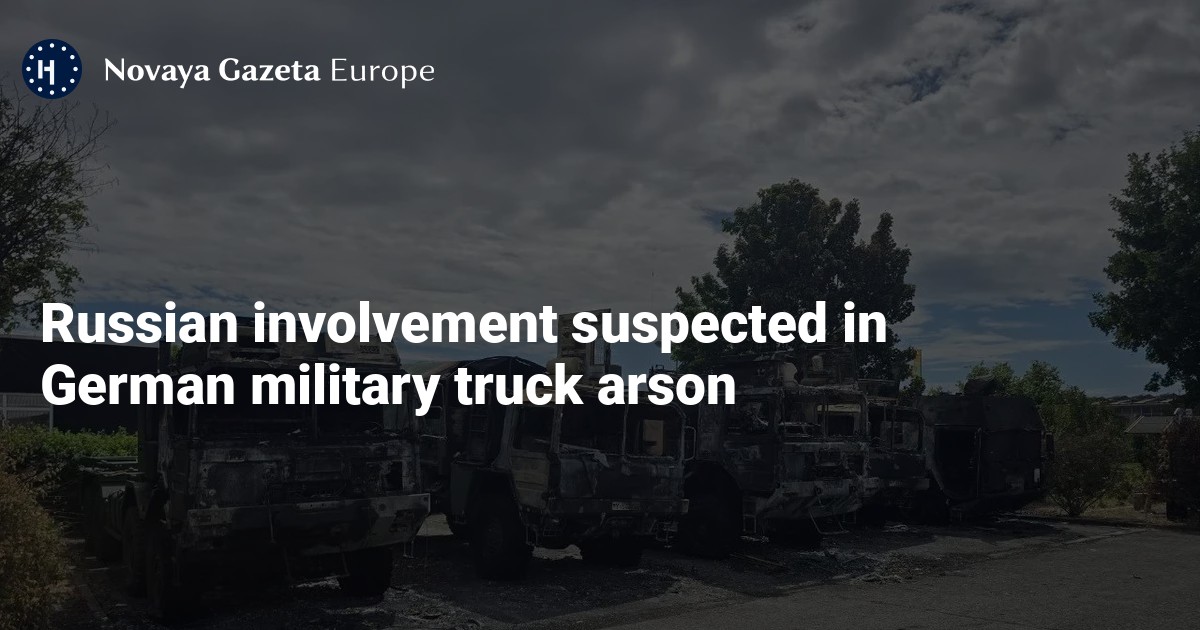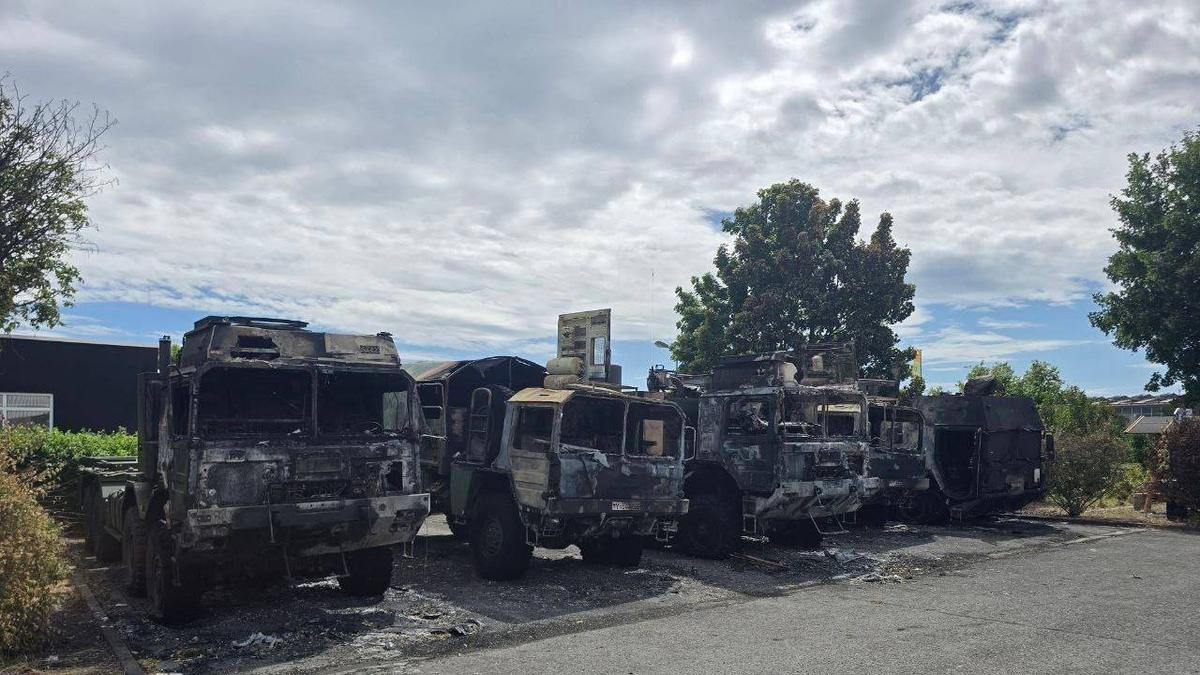




The aftermath of an arson attack in Erfurt, Germany. Photo: Telegram, Voenacher
Pro-Russian individuals were likely involved in the recent arson attacks that left several German military vehicles destroyed, independent Russian investigative outlet The Insider reported on Thursday, citing multiple pro-Kremlin military bloggers who posted videos and photos of the attack.
Last Saturday, a fire broke out overnight in Erfurt, central Germany, that damaged six Rheinmetall MAN military vehicles parked at a commercial vehicle service company, some of which bore German military and NATO markings, according to local media reports.
On Thursday, Russian pro-war Telegram channel Voenacher published a video of the incident that depicted several military vehicles engulfed in flames. It claimed that the vehicles had been under repair for the Ukrainian military, and alleged that “[its] people” conducted the attack.
The video was then shared by several other pro-war Telegram channels, which, according to The Insider, similarly suggested that the arson had been committed in Russia’s interests.
“The vehicles have Bundeswehr emblems, German numbers plates and other signs indicating their relationship to the German army. So either these vehicles were to be decommissioned and sent to Ukraine, or some German army vehicles were burned. In either case, it’s a plus,” one channel wrote on Thursday.
Police have not yet given any details about the cause of the fire or the number of vehicles affected by it, according to local media, while an official investigation into the incident has been opened.
In mid-May, German authorities apprehended three Ukrainian nationals suspected of plotting sabotage operations on behalf of Russia. According to German law enforcement officials, the individuals were under orders from Russian state agencies to carry out arson attacks and intended to ship explosive-laden parcels from Germany to Ukraine that were designed to detonate in transit.
In the last year, Moscow has been accused of carrying out numerous acts of sabotage and arson attacks on public buildings, transport networks and other infrastructure in several European countries, including Poland and Lithuania, as part of what experts believe is a hybrid warfare strategy designed to destabilise the West.
